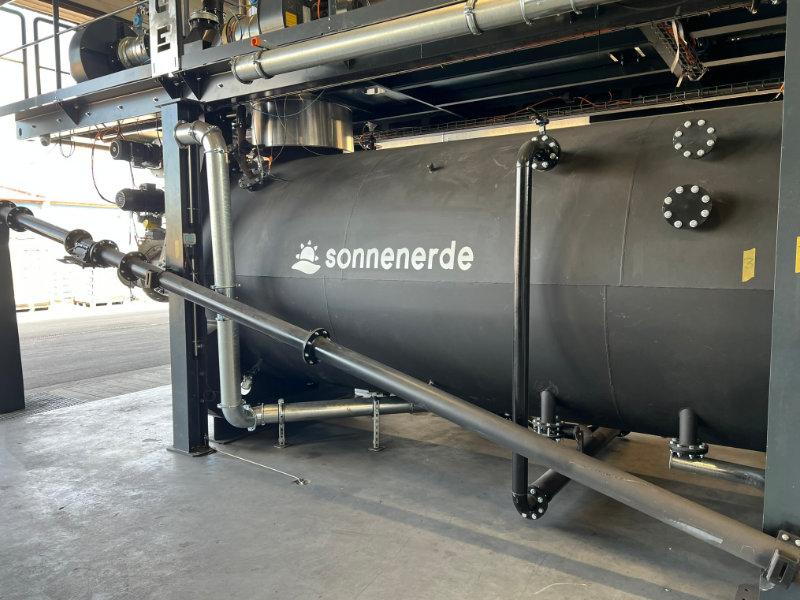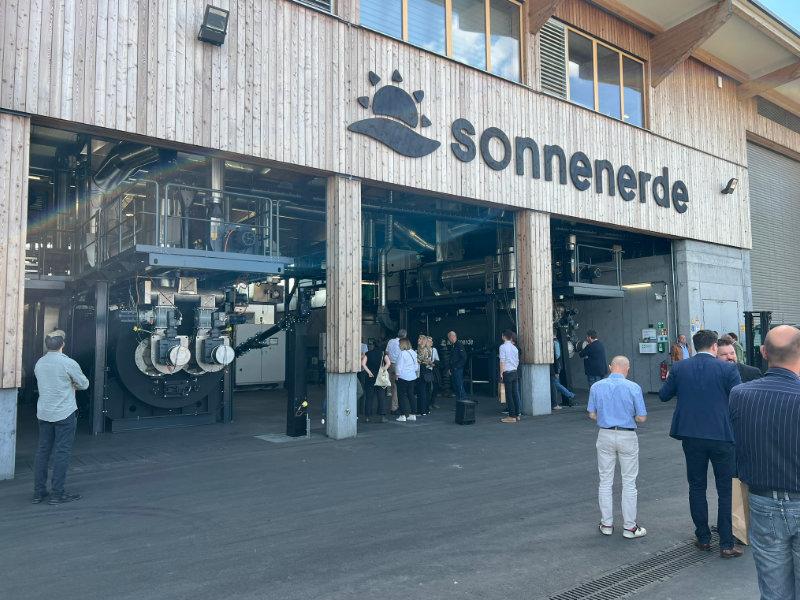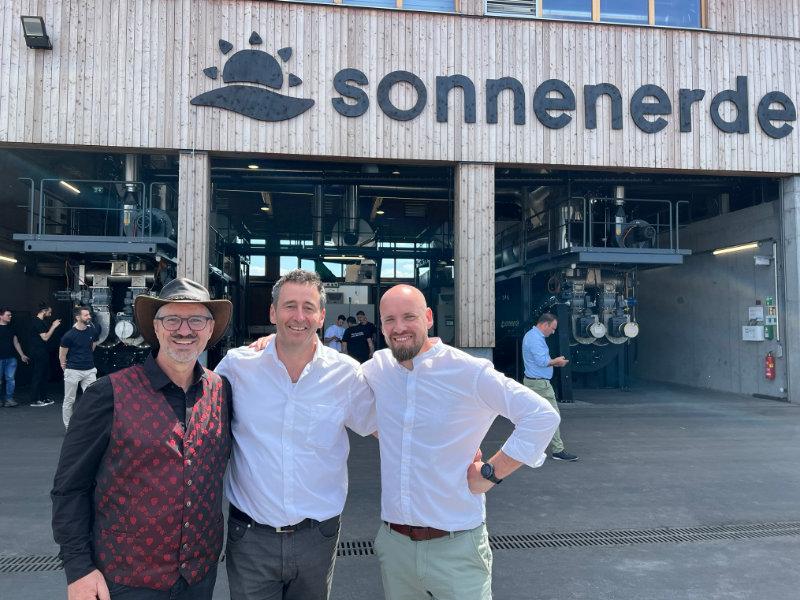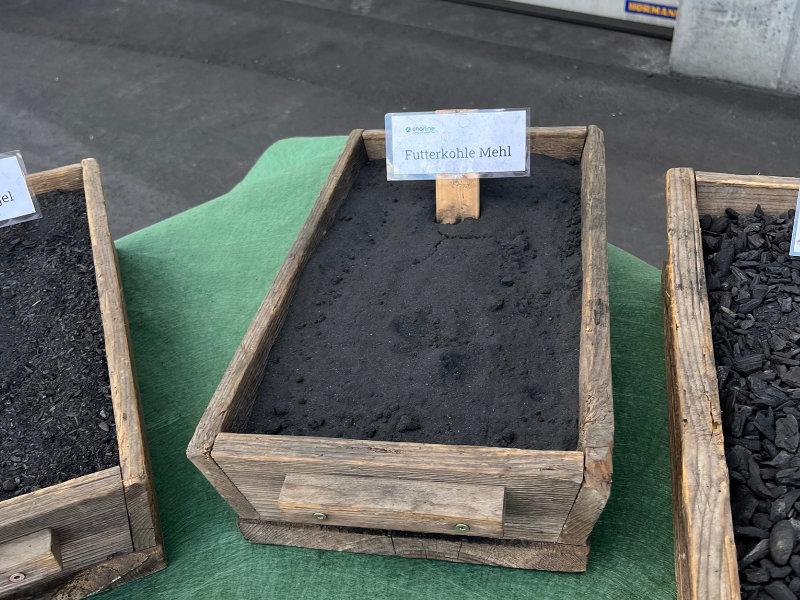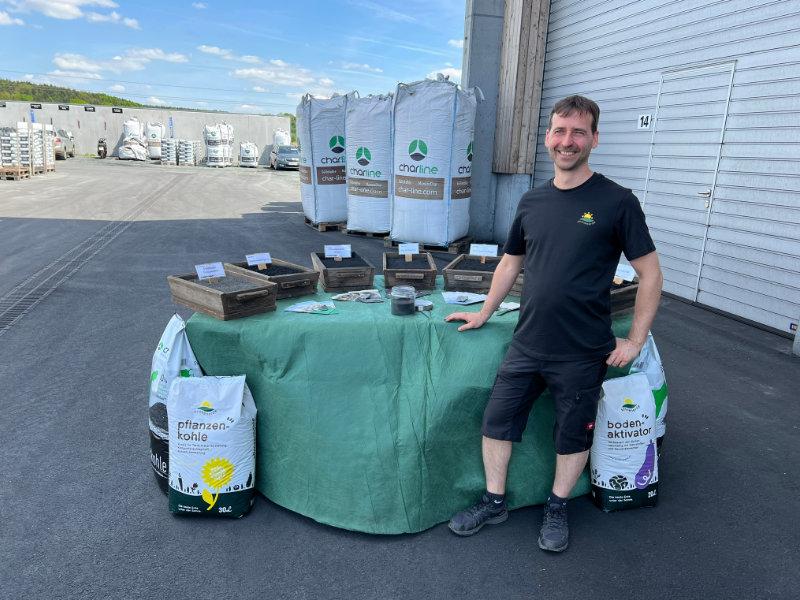
New Biochar Plant for Certified Carbon Sinks
How the facility sets new standards for the production of high-quality EBC biochar
Sonnenerde and Carbon Standards International have already demonstrated the powerful potential of certified biochar for climate protection. The first success story documented how Sonnenerde not only improves soil fertility with its high-quality biochar products but also actively contributes to long-term CO₂ storage.
The partnership is now taking another major step forward: the inauguration of Sonnenerde’s new production plant, developed as part of the EU-funded LIFE Carbon Farming project. This facility enables large-scale, certified production of EBC-grade biochar at prices that make it attractive for use in Sonnenerde’s product lines as well as in agriculture more broadly.
Ueli Steiner, CEO of Carbon Standards International, spoke at the opening event, highlighting:
“This facility sets new standards for the production of high-quality, certified EBC biochar. Sonnenerde shows how sustainable soil and substrate production can go hand in hand with real climate action.”
What the New Production Plant Delivers
- Greater production capacity for more certified biochar
- More efficient processes that cut energy use and emissions
- Enhanced carbon storage in products, backed by the Global C-Sink standard
To ensure biochar meets the highest quality standards and is recognised as a verified CO₂ sink, a transparent and science-based certification system is essential. Carbon Standards International provides exactly that with the European Biochar Certificate (EBC) and Global C-Sink standards.
By certifying the new production plant according to these standards, CSI and Sonnenerde ensure that every batch of biochar meets strict quality requirements and also demonstrably locks away large volumes of carbon over the long term. That means:
- Every production batch is rigorously tested for quality and carbon retention.
- The entire production process is documented and verified.
- Companies and organisations purchase this certified biochar and use it in their products. In parallel, climate certificates are issued: anyone who produces biochar and incorporates it into soil or other products can sell the verified, sequestered CO₂ along with an associated certificate.
- Governments, companies, and individuals looking to offset their carbon footprint can purchase these certificates, supporting a growing market that restores agricultural soils and contributes directly to climate mitigation.
EU Support for Climate-Smart Agriculture
The LIFE Carbon Farming project, which helped fund the construction of the new plant, is backed by the European Union. Its goal: to support farms in reducing their CO₂ emissions. Sonnenerde plays a central role in the project by showing how biochar can be used both as a soil enhancer and a certified CO₂ sink in a financially viable way.
Policy Frameworks
Political and regulatory frameworks strongly influence the demand for certified biochar. CO₂ pricing policies, national climate strategies, and EU carbon storage guidelines all play a critical role in scaling this kind of solution.
Across the EU, a trend is emerging: companies and farms are increasingly expected to adopt sustainable methods to reduce greenhouse gas emissions. For innovative technologies such as biochar to reach their full economic and climate potential, long-term funding structures and clear incentives to reward certified CO₂ storage in the agricultural sector are needed.
Sonnenerde’s managing director, Gerald Dunst, urges policymakers to officially recognise biochar as a long-term carbon sink and to offer targeted incentives for its agricultural use. A lack of standardised mechanisms to fairly compensate farmers for using certified biochar and the currently low price of CO₂ certificates remain barriers.
Sonnenerde Managing Director Gerald Dunst adds:
“This new plant is a big step forward for us in bringing biochar into wider use. We can now not only increase production but also explore new applications for biochar, including in construction or water treatment,” says Dunst. “But for biochar to reach its full potential, we need a reliable political framework and a realistic price for C-Sink certificates. Without those incentives, it will be hard to drive large-scale transformation.”
A Shared Vision for a Sustainable Future
Through their close collaboration, Sonnenerde and Carbon Standards International are setting a new benchmark for climate-friendly agriculture. The new production facility is not just a technological milestone — it’s a clear signal about the future of CO₂ storage.
Learn more: sonnenerde.at

